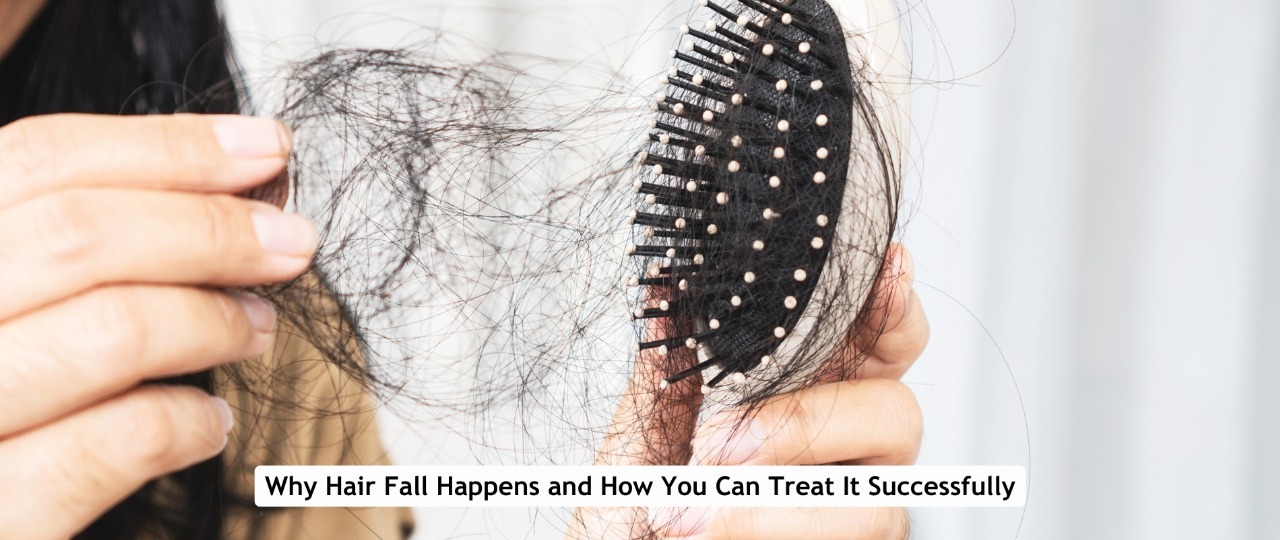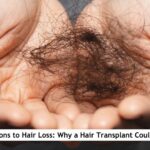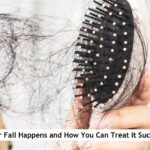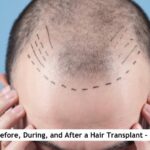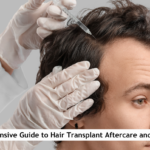Hair loss or hair fall is a common issue that affects both men and women, often leading to a loss of self-confidence and frustration. Whether it’s a gradual thinning or sudden shedding, hair fall can be triggered by a variety of factors, ranging from genetics to lifestyle choices. Fortunately, with the right hair fall treatment in Udaipur, you can take control of your hair health and restore its natural thickness and volume.
In this blog, we’ll explore why hair fall happens, the common causes behind it, and the most effective treatments available to combat hair loss and promote hair regrowth.
Why Does Hair Fall Happen?
Understanding the underlying causes of hair fall is the first step towards finding the right solution. Hair loss can occur due to various reasons, and often, it’s a combination of factors that contribute to thinning hair or bald spots. Here are some of the most common reasons why hair fall happens:
1. Genetics (Androgenic Alopecia)
Genetics is one of the most common reasons for hair loss. Known as androgenic alopecia, this hereditary condition is responsible for male and female pattern baldness. In men, this condition typically leads to a receding hairline and thinning of hair on the crown, while in women, it often manifests as diffuse thinning across the scalp.
Androgenic alopecia occurs when the hair follicles are sensitive to dihydrotestosterone (DHT), a hormone that shrinks the follicles, causing the hair to grow thinner over time and eventually stop growing.
2. Hormonal Changes
Hormonal imbalances can also be a significant cause of hair fall. For women, hair loss is often triggered by pregnancy, childbirth, menopause, or conditions like polycystic ovary syndrome (PCOS). During these times, the body experiences fluctuations in hormones like estrogen and progesterone, which can affect hair growth cycles and lead to shedding.
Men can also experience hair loss due to hormonal changes, especially an increase in DHT levels, which leads to the shrinkage of hair follicles.
3. Nutritional Deficiencies
A lack of essential nutrients, such as iron, protein, vitamins (especially vitamin D and biotin), and zinc, can result in hair thinning and shedding. Malnutrition or a poor diet can disrupt the normal growth cycle of hair, making it more prone to falling out. Hair needs proper nourishment to stay healthy, so deficiencies in key nutrients can hinder growth and cause noticeable hair fall.
4. Stress
Both physical and emotional stress can have a significant impact on your hair health. Stress can lead to a condition called telogen effluvium, where more hair follicles enter the shedding phase, causing temporary hair loss. While this type of hair loss is usually reversible, ongoing stress can lead to prolonged shedding and thinning.
5. Medical Conditions and Medications
Certain medical conditions can contribute to hair loss, including thyroid disorders, autoimmune diseases like alopecia areata, diabetes, and scalp infections. In addition, medications used for conditions like cancer, arthritis, and depression can also cause hair loss as a side effect.
6. Environmental Factors and Hair Care Practices
Harsh weather, pollution, and exposure to chemicals can weaken hair and contribute to hair fall. Frequent use of heat-styling tools, coloring treatments, and harsh shampoos can also damage the hair shaft and follicles, leading to breakage and thinning.
How to Treat Hair Fall Successfully
Now that we understand the causes of hair fall, it’s time to look at the most effective ways to treat and manage hair loss. If you’re struggling with hair fall, seeking professional guidance and using proven treatments can help restore your hair’s health. Below are some of the most successful options:
1. Hair Fall Treatments at Dermadent Clinic
At Dermadent Clinic, we offer a variety of hair fall treatments in Udaipur that are tailored to address the root causes of your hair loss. Our team of experts uses the latest technologies and techniques to help restore your hair. Here are some of the treatments available at our clinic:
- PRP Therapy (Platelet-Rich Plasma): PRP therapy uses your own blood to stimulate hair growth. A blood sample is taken, processed to concentrate the platelets, and then injected into the scalp. The growth factors in PRP promote hair follicle regeneration, leading to healthier hair growth.
- Mesotherapy: This involves injecting a combination of vitamins, minerals, and amino acids into the scalp to nourish hair follicles and promote regrowth. Mesotherapy is ideal for addressing hair thinning caused by nutritional deficiencies or hormonal imbalances.
- Hair Transplant: For those with advanced hair loss, a hair transplant may be the most effective solution. During this procedure, healthy hair follicles are taken from areas of dense hair growth and transplanted to thinning or bald areas.
2. Topical Treatments
Topical treatments like minoxidil (Rogaine) have been proven to help reduce hair loss and stimulate hair growth. Minoxidil works by increasing blood flow to the scalp and revitalizing hair follicles, helping them grow new hair. This treatment is FDA-approved and has shown promising results for people suffering from male and female pattern baldness.
3. Lifestyle and Dietary Changes
Eating a balanced diet rich in essential nutrients is key to promoting healthy hair. Include plenty of proteins, fruits, vegetables, and whole grains in your diet. Foods high in vitamins and minerals, such as biotin, zinc, and iron, can help strengthen your hair and reduce shedding. You may also want to consider taking supplements specifically designed to promote hair health.
Reducing stress through techniques like yoga, meditation, or deep breathing exercises can also help minimize hair fall. Since stress is a major contributor to hair loss, managing your stress levels is crucial for maintaining healthy hair.
4. Proper Hair Care Routine
To prevent damage and breakage, be sure to follow a gentle hair care routine. Use mild, sulfate-free shampoos that nourish the hair without stripping it of essential oils. Avoid excessive heat styling and harsh chemical treatments that can weaken the hair shaft. Regularly trimming your hair can also help keep it healthy by removing split ends.
5. Medical Consultation
If your hair fall is persistent or worsening, it’s crucial to consult a dermatologist or hair specialist. A professional can help identify the underlying cause of your hair loss and recommend the most effective treatment. At Dermadent Clinic, we offer personalized hair fall consultations to develop a treatment plan tailored to your specific needs.
Conclusion
Hair fall is a common issue, but with the right treatment plan, it’s possible to restore your hair’s health and thickness. Whether you choose PRP therapy, mesotherapy, or other hair regrowth treatments, the experts at Dermadent Clinic are here to guide you through the process. If you’re looking for hair fall treatment in Udaipur, contact us today to schedule a consultation and take the first step toward healthier, fuller hair.

